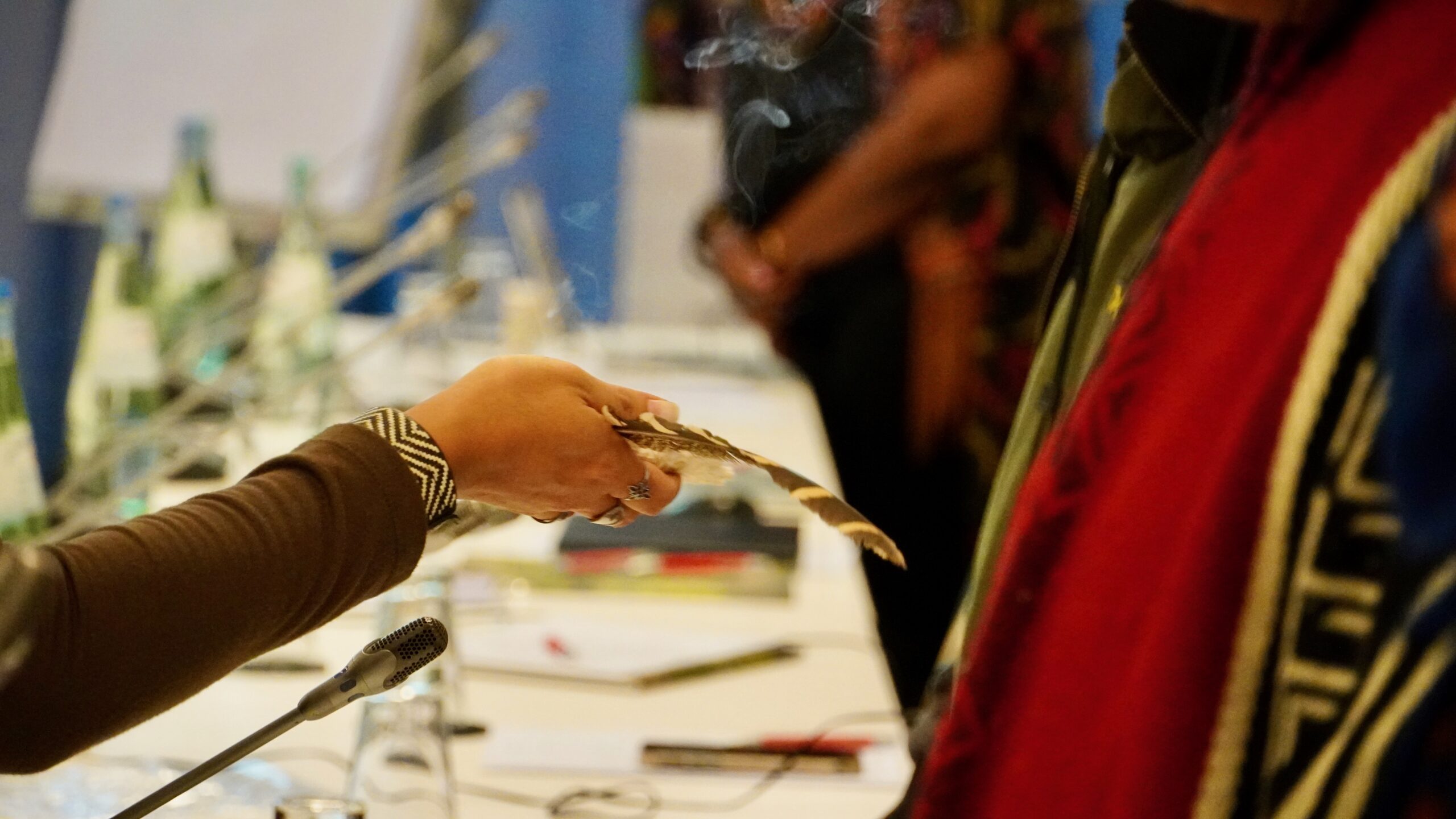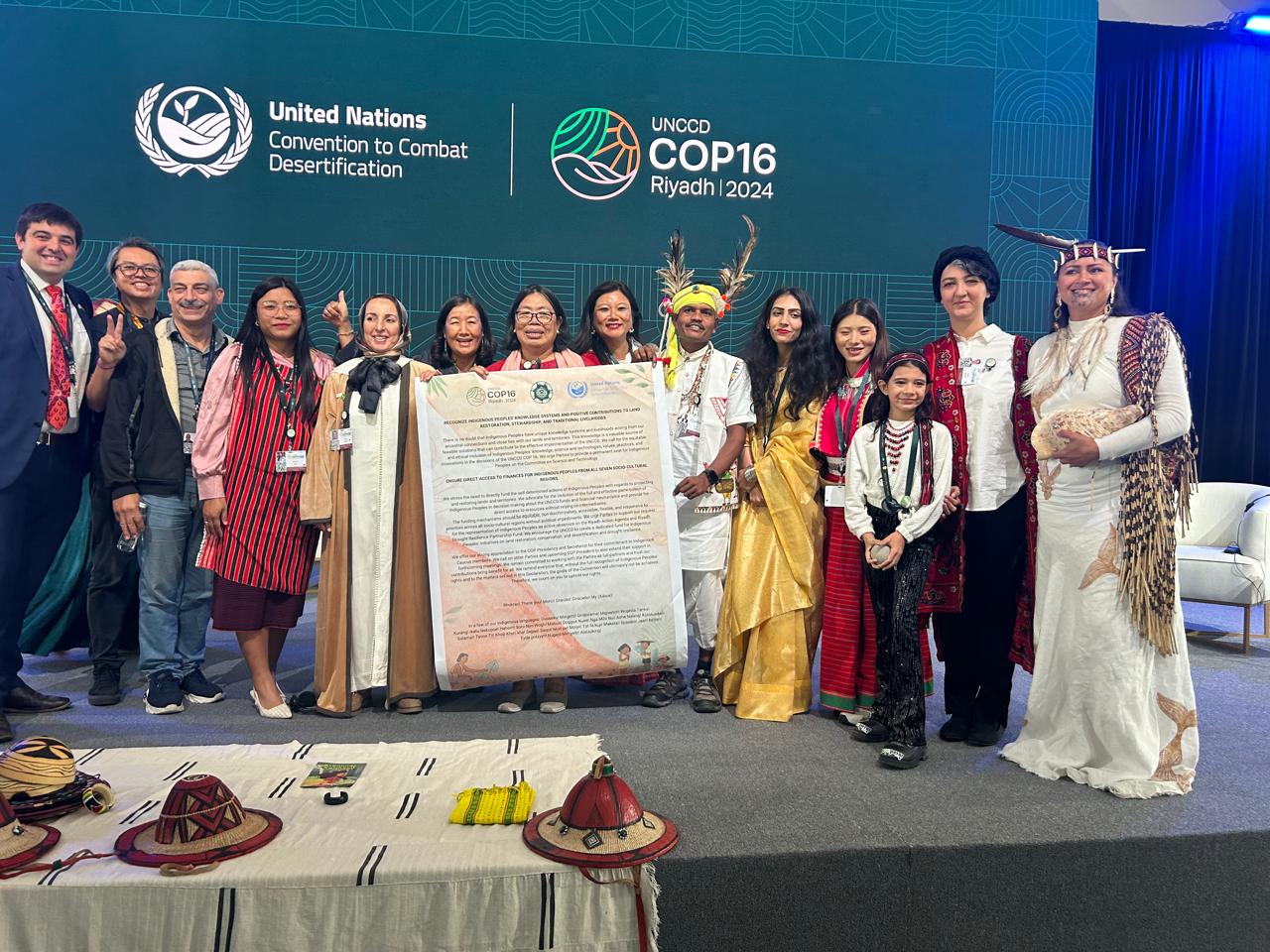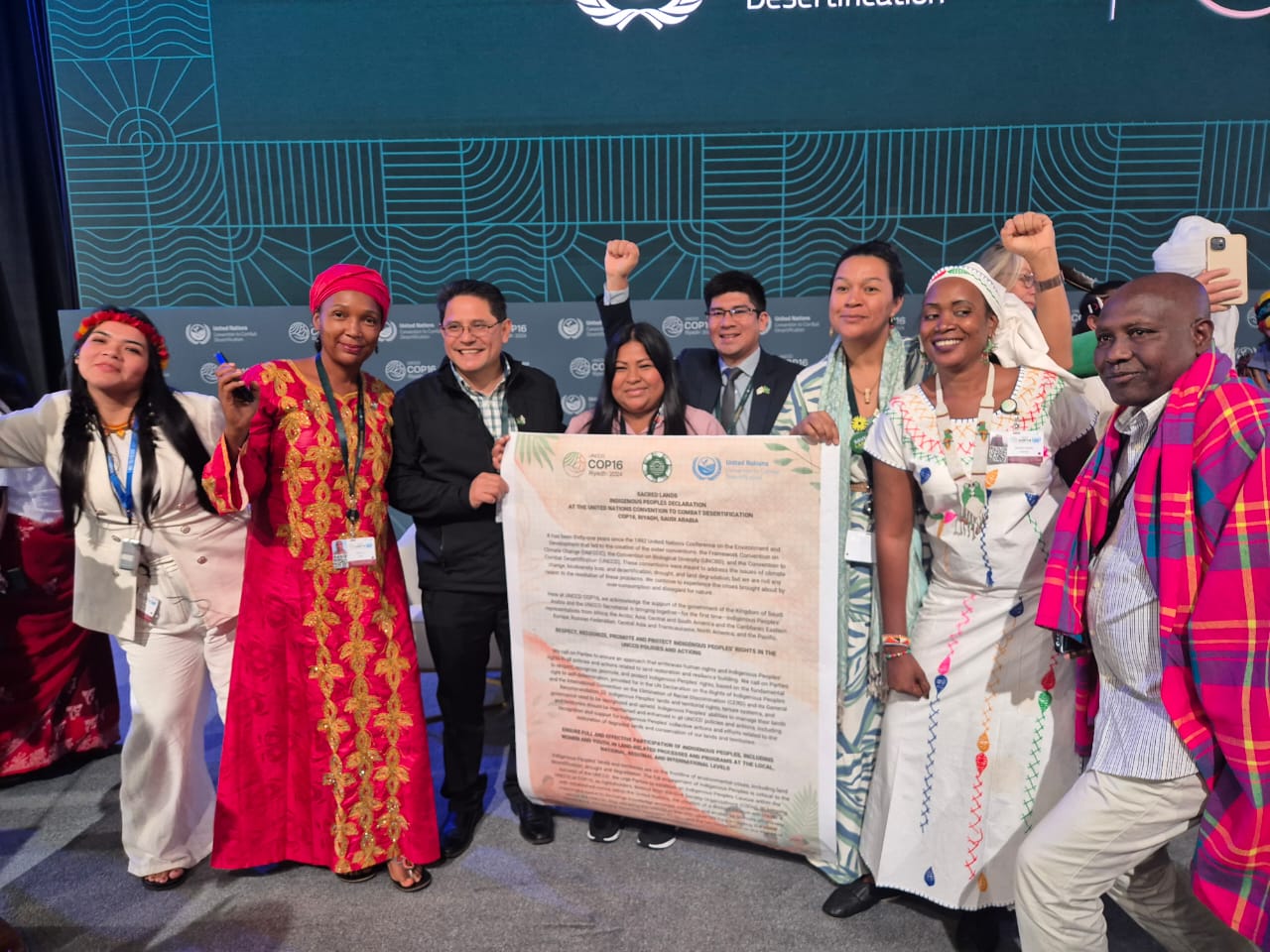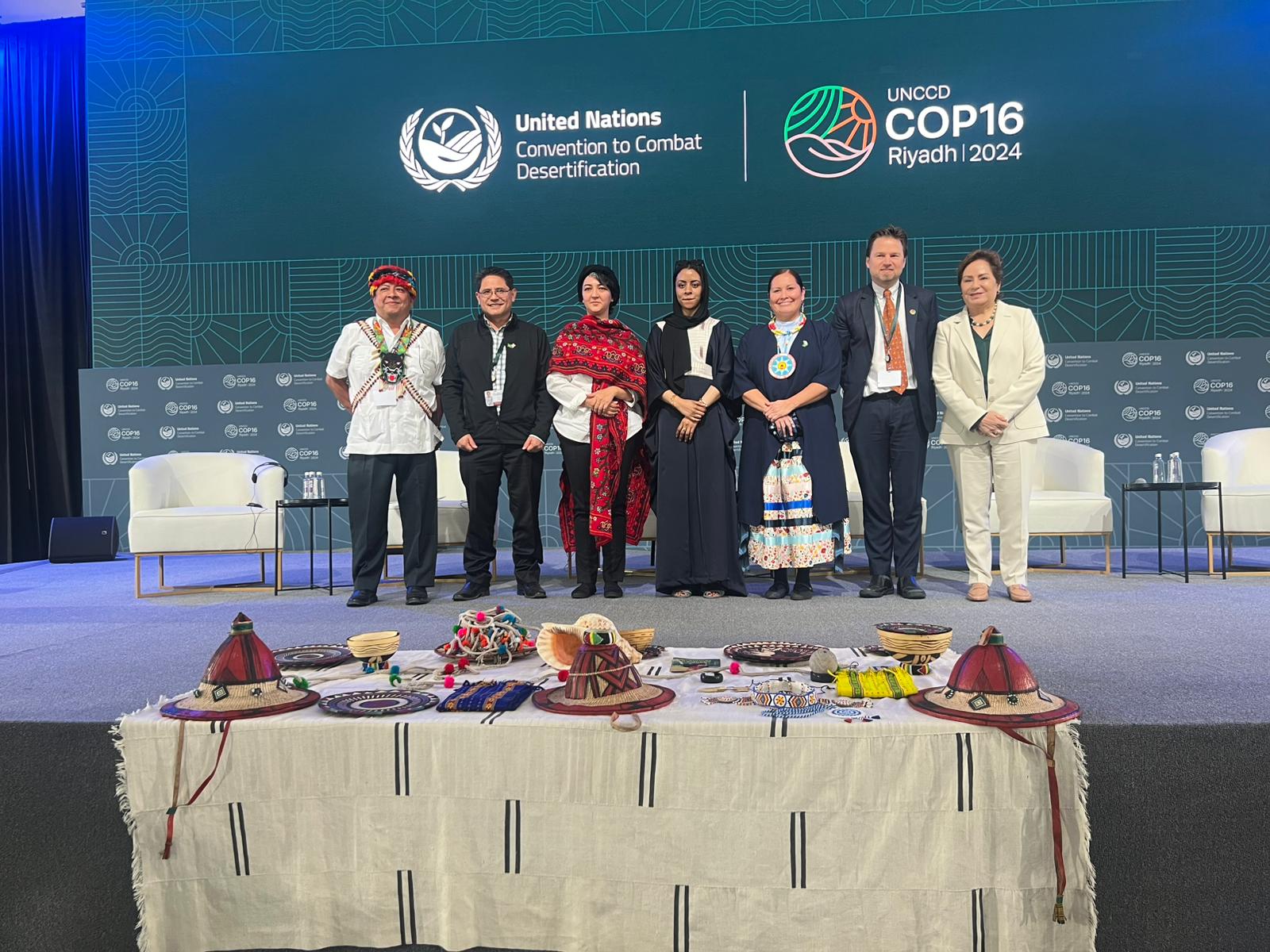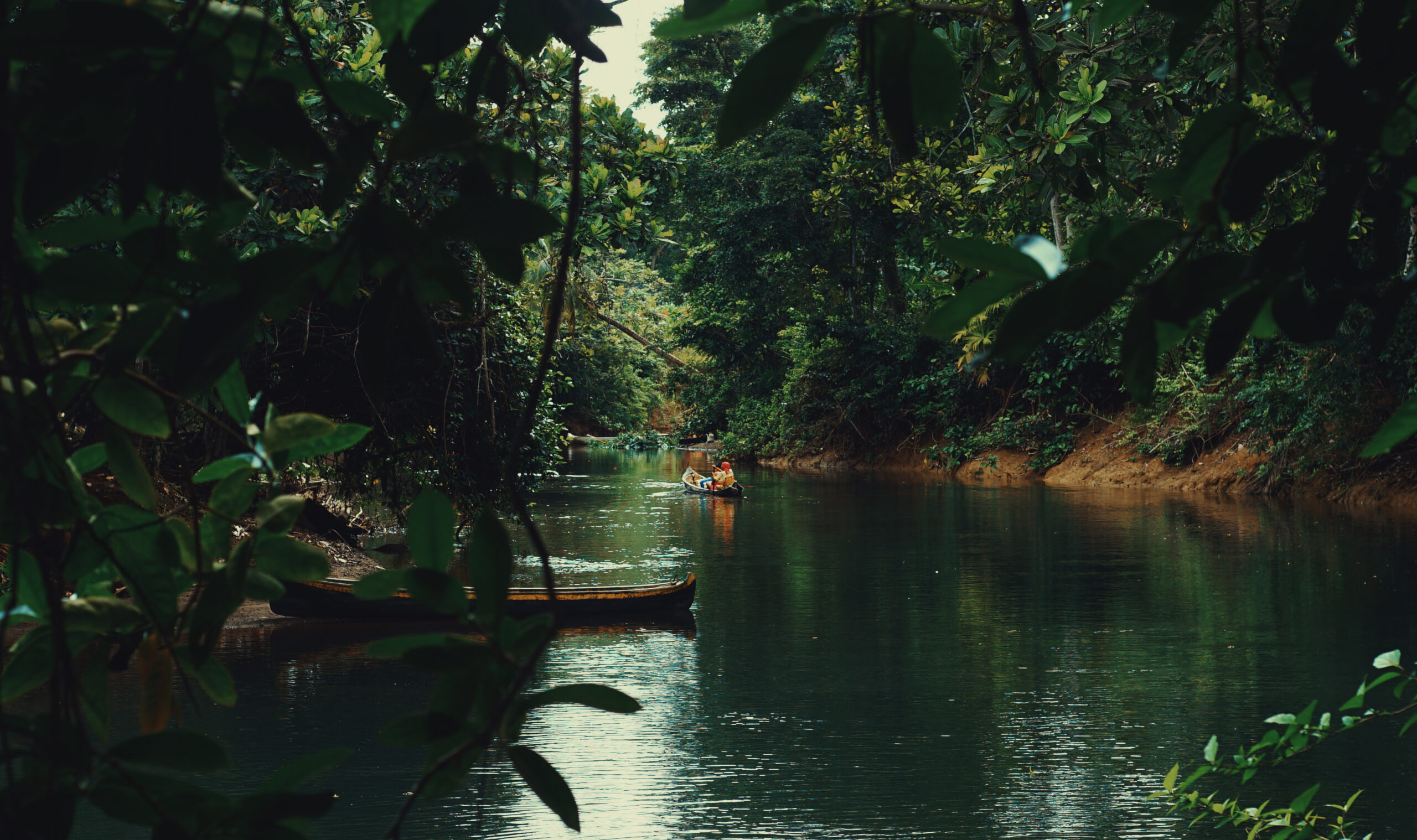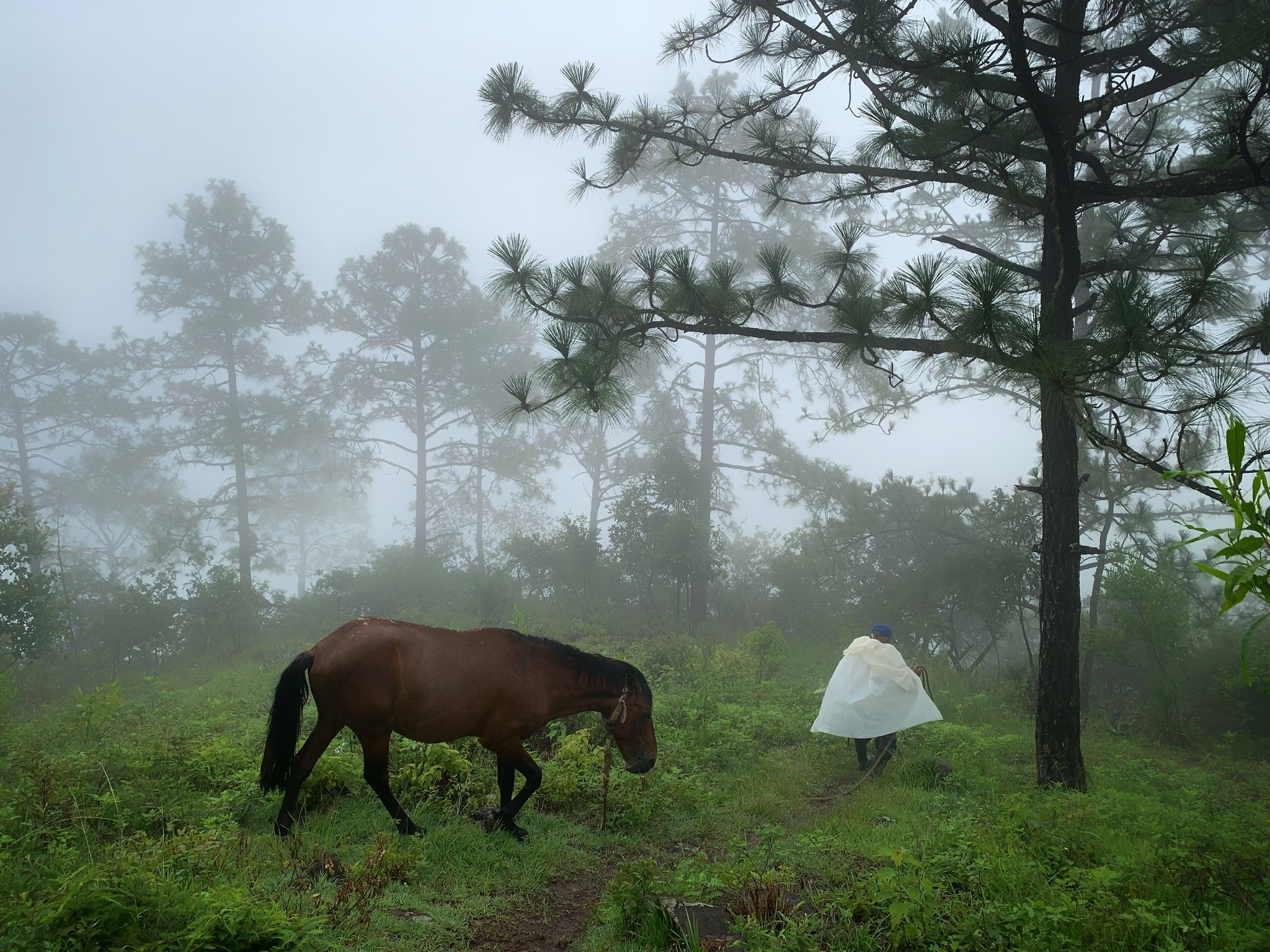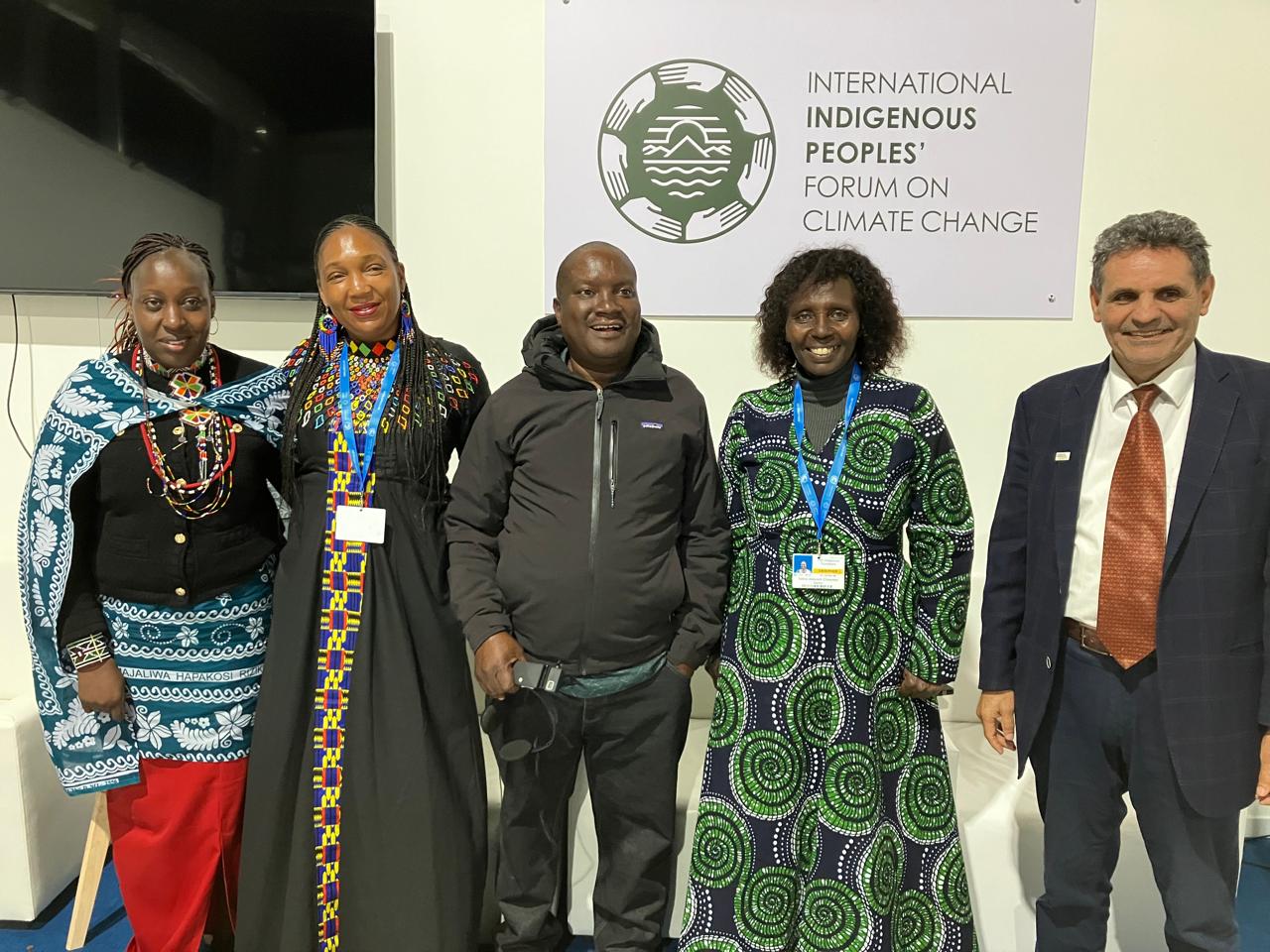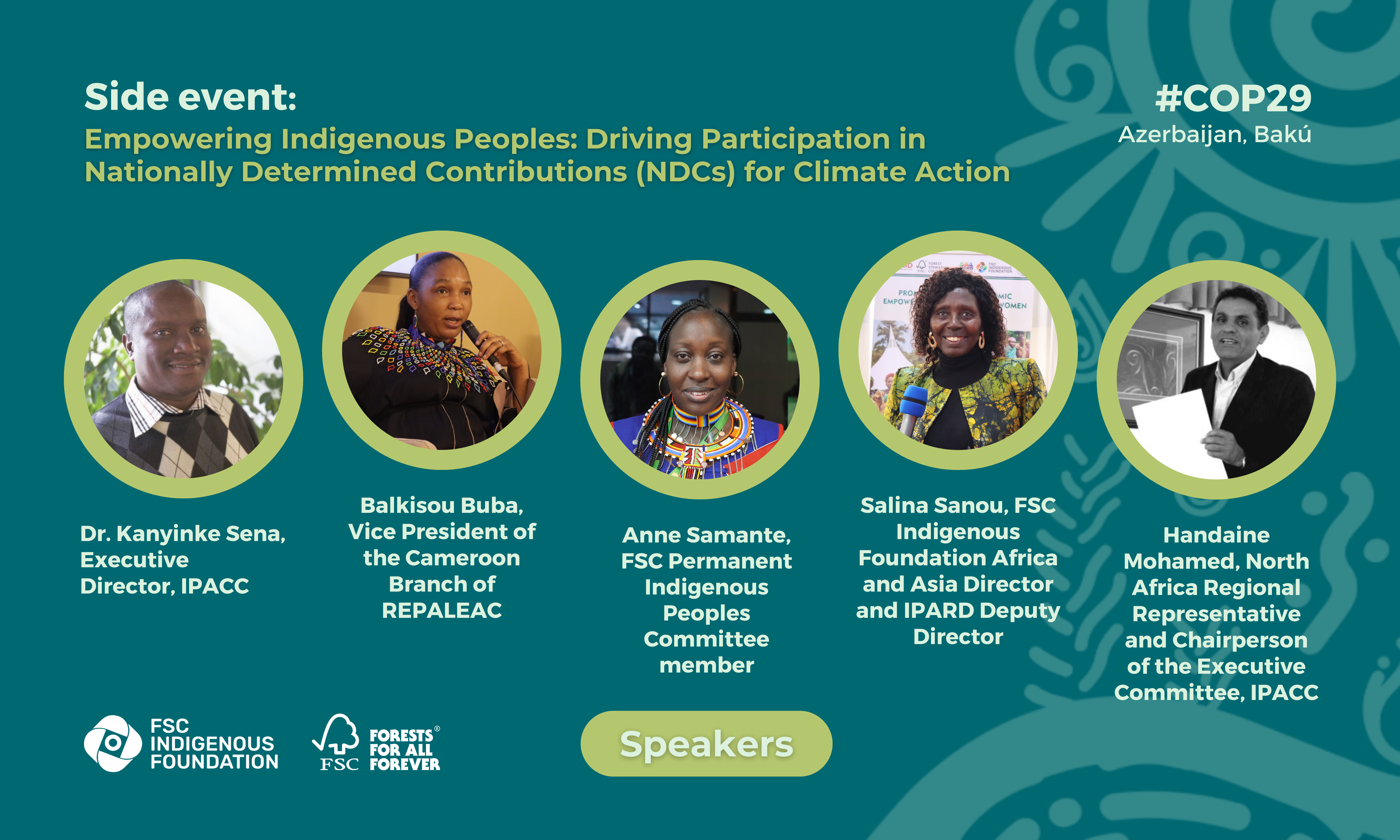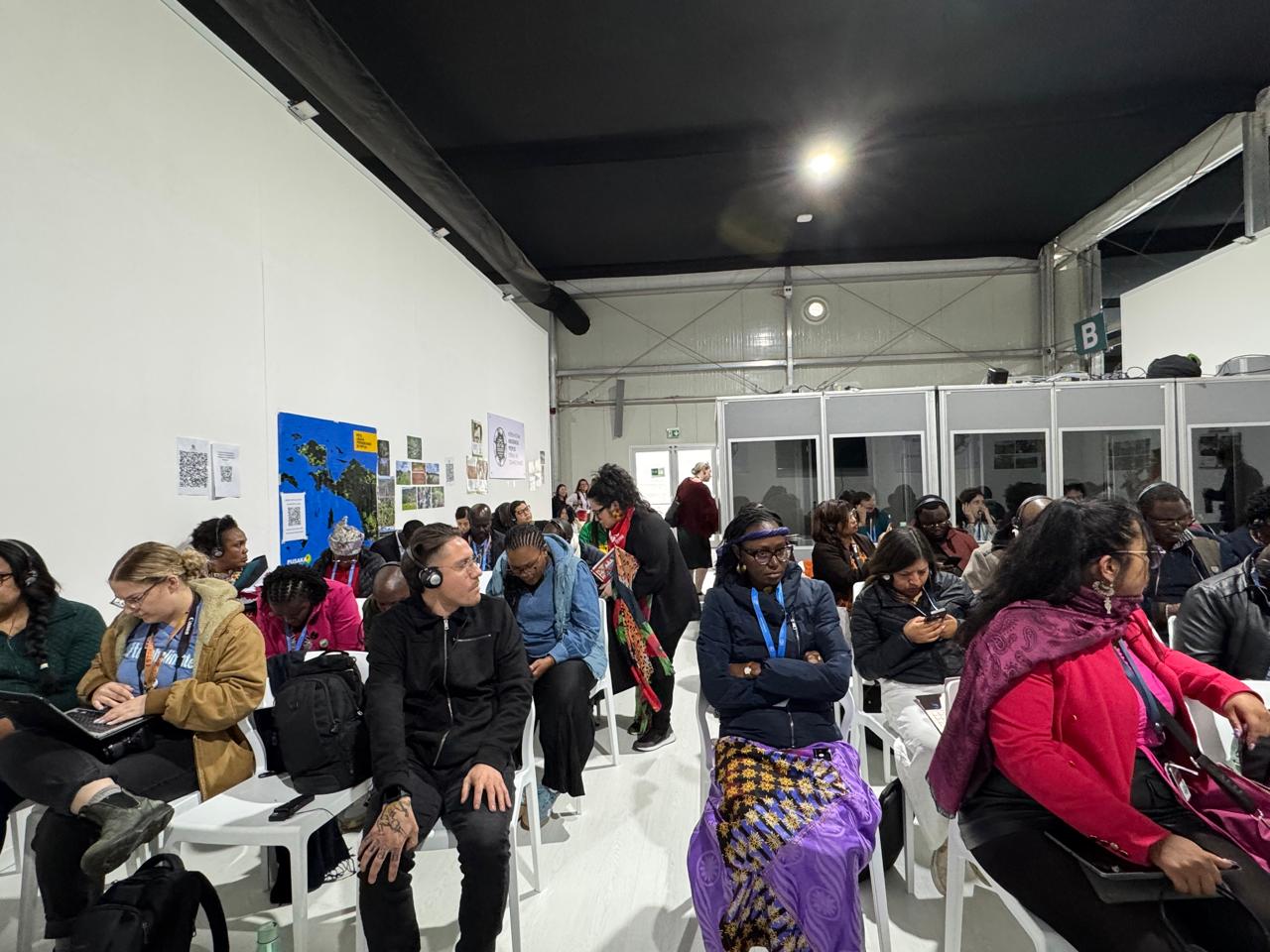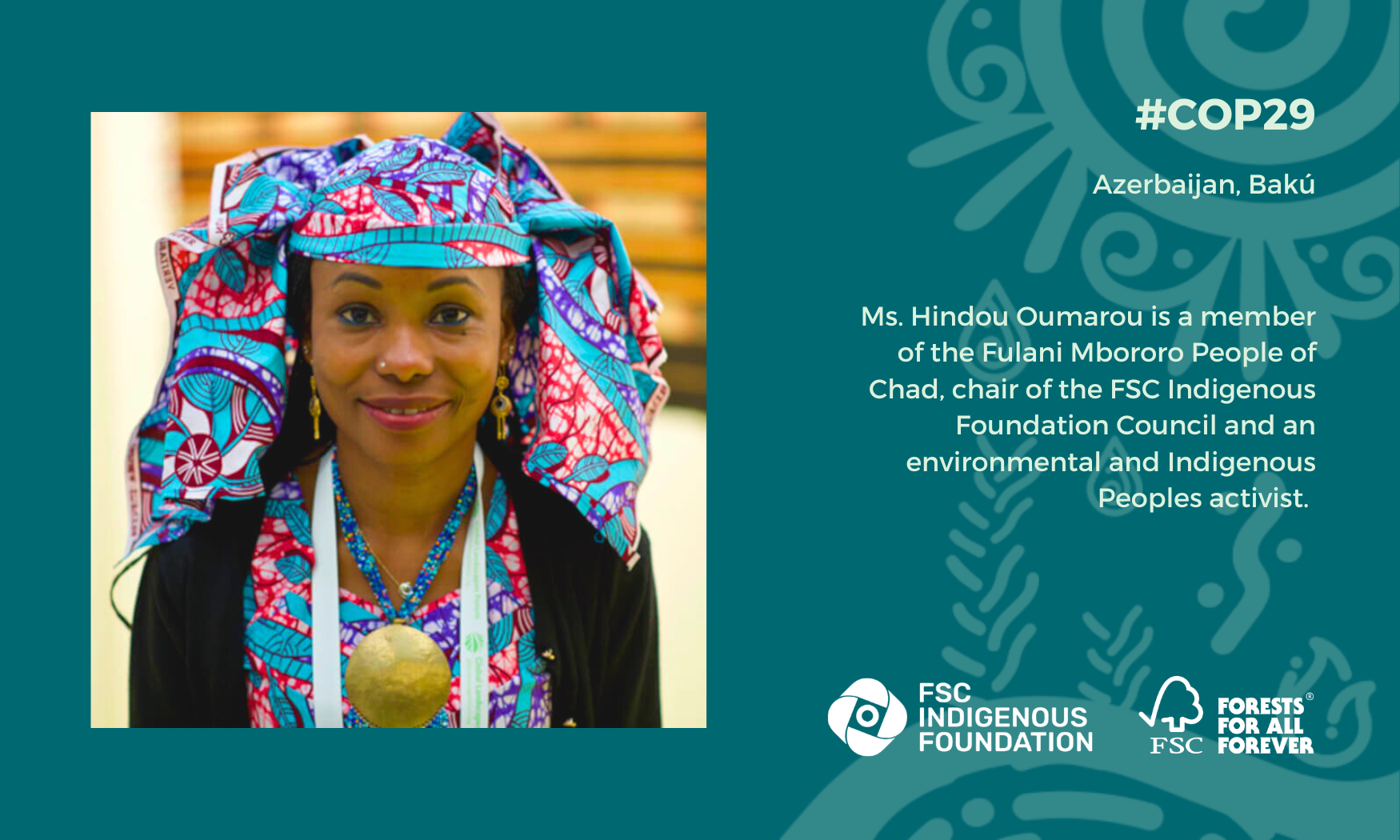I am the forest, and the forest is me
Global Indigenous leaders gather to exchange knowledge and foster greater awareness of Indigenous perspectives on forest stewardship.
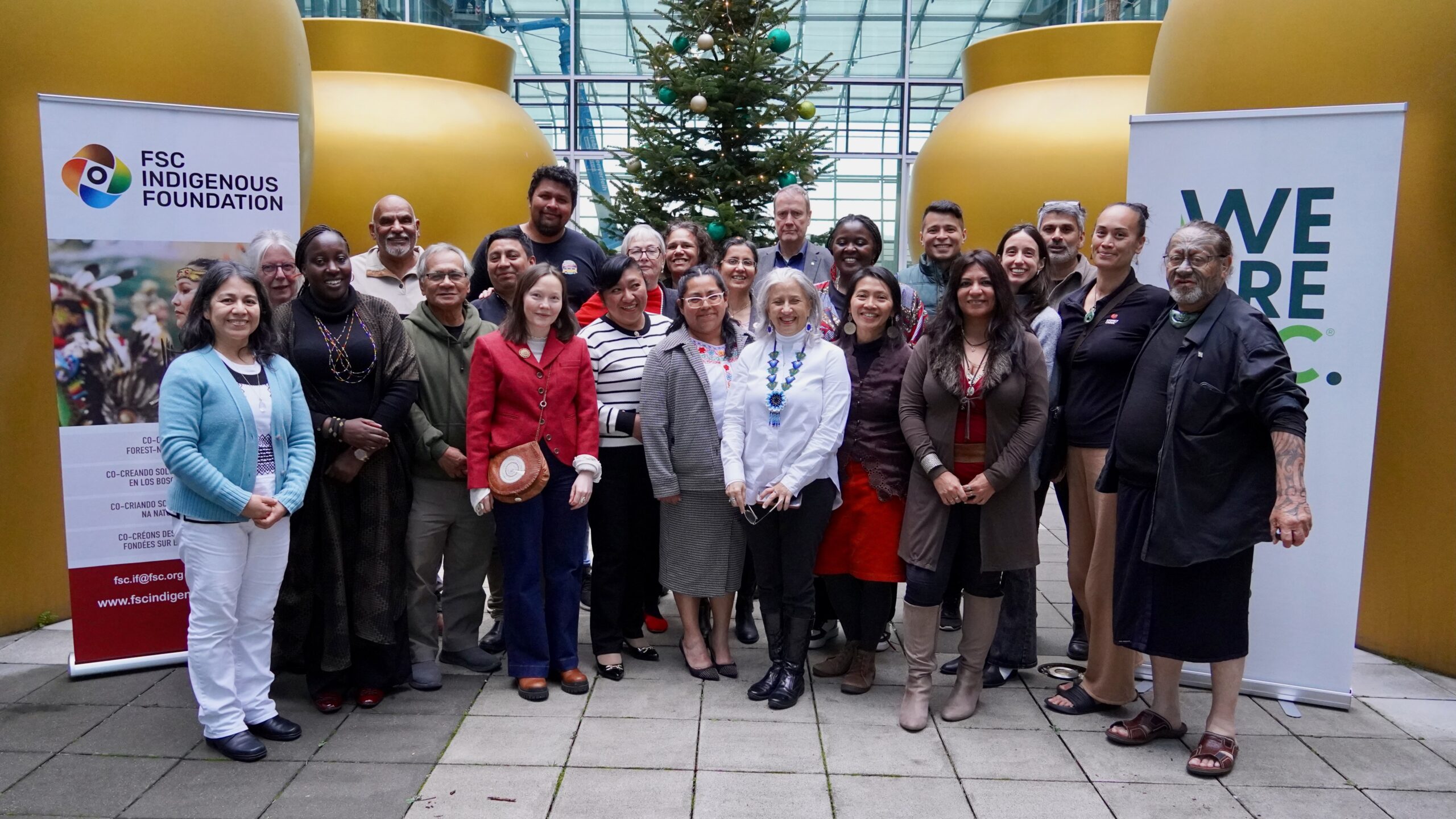
From December 9 – 13 in Bonn, Germany, the Forest Stewardship Council (FSC) Permanent Indigenous Peoples Committee (PIPC), FSC Indigenous Foundation Council members, and Indigenous leaders from around the world gathered for an important training and knowledge exchange workshop.
Supported by the FSC and the FSC Indigenous Foundation, the workshop explored how to amplify Indigenous voices within the FSC framework, deepen understanding of FSC’s vision, principles, and tools, and foster greater awareness of Indigenous perspectives on forest stewardship.
A global committee for Indigenous rights and forests
The Permanent Indigenous Peoples Committee (PIPC) is a global advisory committee of Indigenous representatives from all regions of the planet to advise the FSC International Board on the FSC certification system, safeguard Indigenous Peoples’ rights, enhance forest management, and support Indigenous Peoples in building FSC certified forest stewardship, increasing their market share and value. The FSC Indigenous Foundation serves as the Secretariat of the PIPC.
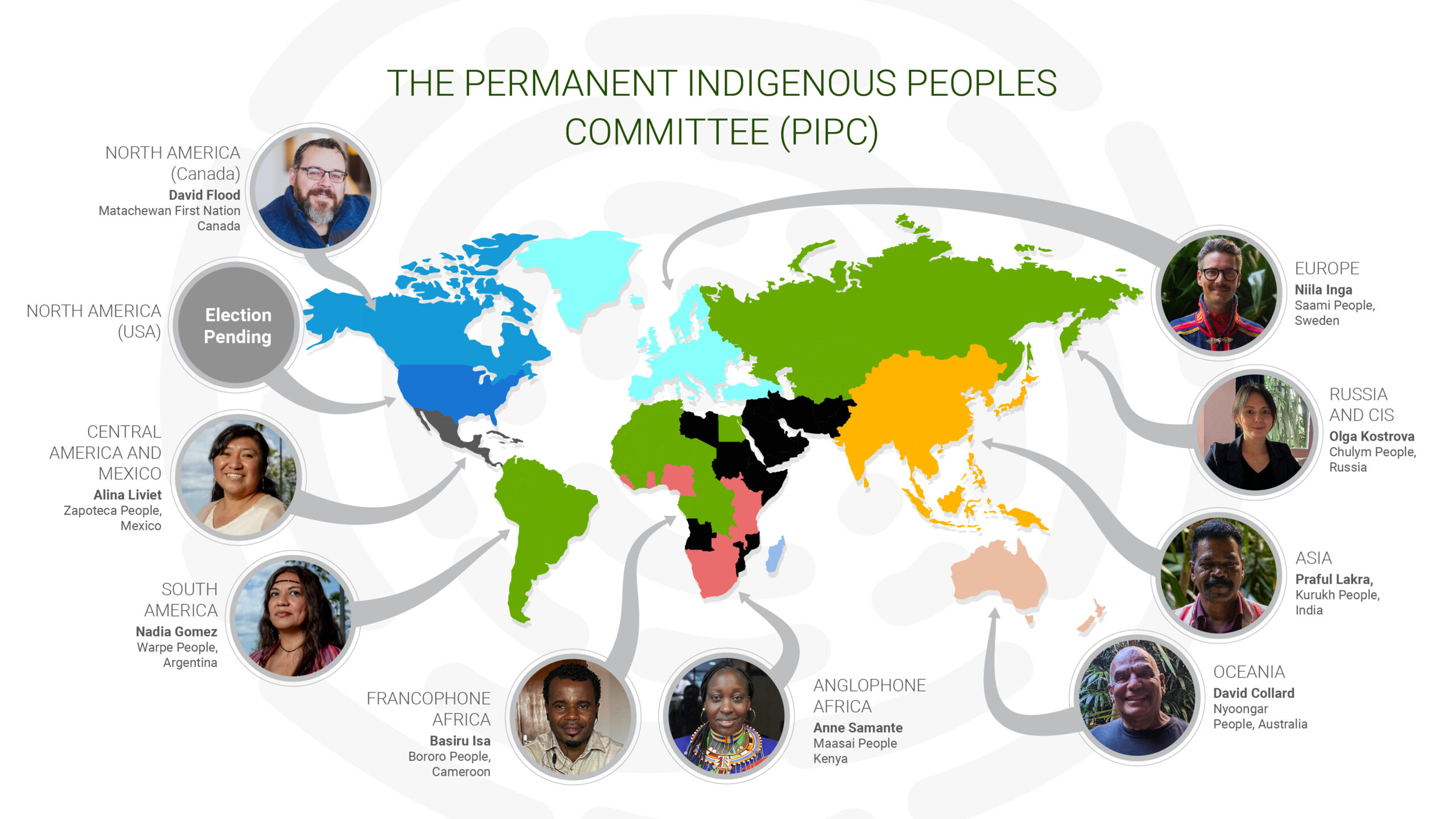
PIPC members Alina Liviet Santiago of the Zapoteca Peoples in Mexico, Nadia Gomez of the Warpe Peoples in Argentina, Samante Anne of the Maasai People in Kenya, and David Collard of the Nyoongar Peoples in Australia joined the workshop in person, along with alternate members Te Ngaehe Wanikau of the Maori in Aotearoa and Selvyn Perez of the Maya in Guatemala. Members David Flood of the Matachewan First Nation in Canada, Basiru Isa of the Bororo Peoples of Cameroon, Praful Lakra of the Kurukh People of India, Olga Kostrova of the Chulym People of Russia, and Niila Inga of the Sami People in Sweden joined virtually. Two representatives from the FSC-IF Council were also present – Vice Chair Peggy Smith and Nicholas Mujah.
In addition, PIPC members invited Indigenous leaders from their regions engaged in sustainable forest management, from the lands of the Sámpi in Sweden, Ixtlan de Juarez in Mexico, Maori of Aotearoa, and from the impenetrable Choco in Argentina.
Finally, members of the FSC-IF staff and FSC staff were present.
This workshop was a key activity in the 2024 PIPC Work Plan to reinforce capacity building and knowledge exchange, providing a platform for in-depth discussions with several key FSC units.
The PIPC’s 2024 Work Plan was focused on four key areas: strengthening governance and leadership to ensure better representation of Indigenous Peoples within FSC, increasing active participation in FSC initiatives and policy development, enhancing knowledge sharing and capacity-building for both PIPC members and non-Indigenous stakeholders, and raising the visibility of Indigenous issues within the FSC community.
Knowledge exchange workshop
FSC Director General Subhra Bhattacharjee opened the workshop, emphasizing the importance of robust inputs from PIPC members regarding the challenges of climate change. PIPC Co-Chair Alina Liviet Santiago, FSC-IF Interim Managing Director Sarah Banda-Genchev, FSC-IF Council Vice-Chair Peggy Smith, and FSC Board Member and Liaison with PIPC Zandra Martinez, also gave opening remarks.
Next, PIPC members, alternates, and other invited Indigenous leaders presented themselves, their Peoples, and their forests.
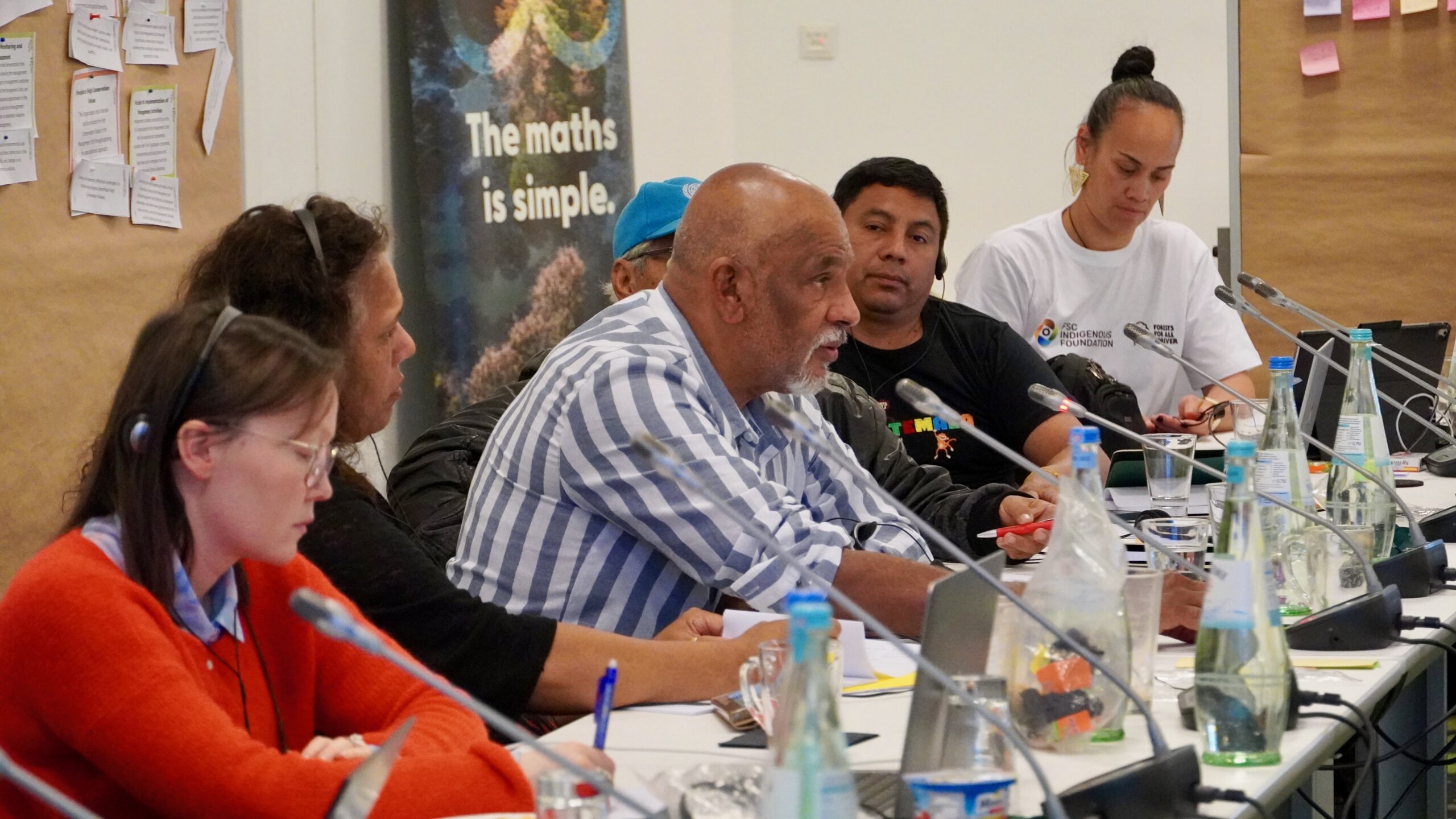
“Forests are a right.” David Collard
“I am the forest and the forest is me. If our forests are in pain, we are in pain.” Te Ngaehe Wanikau
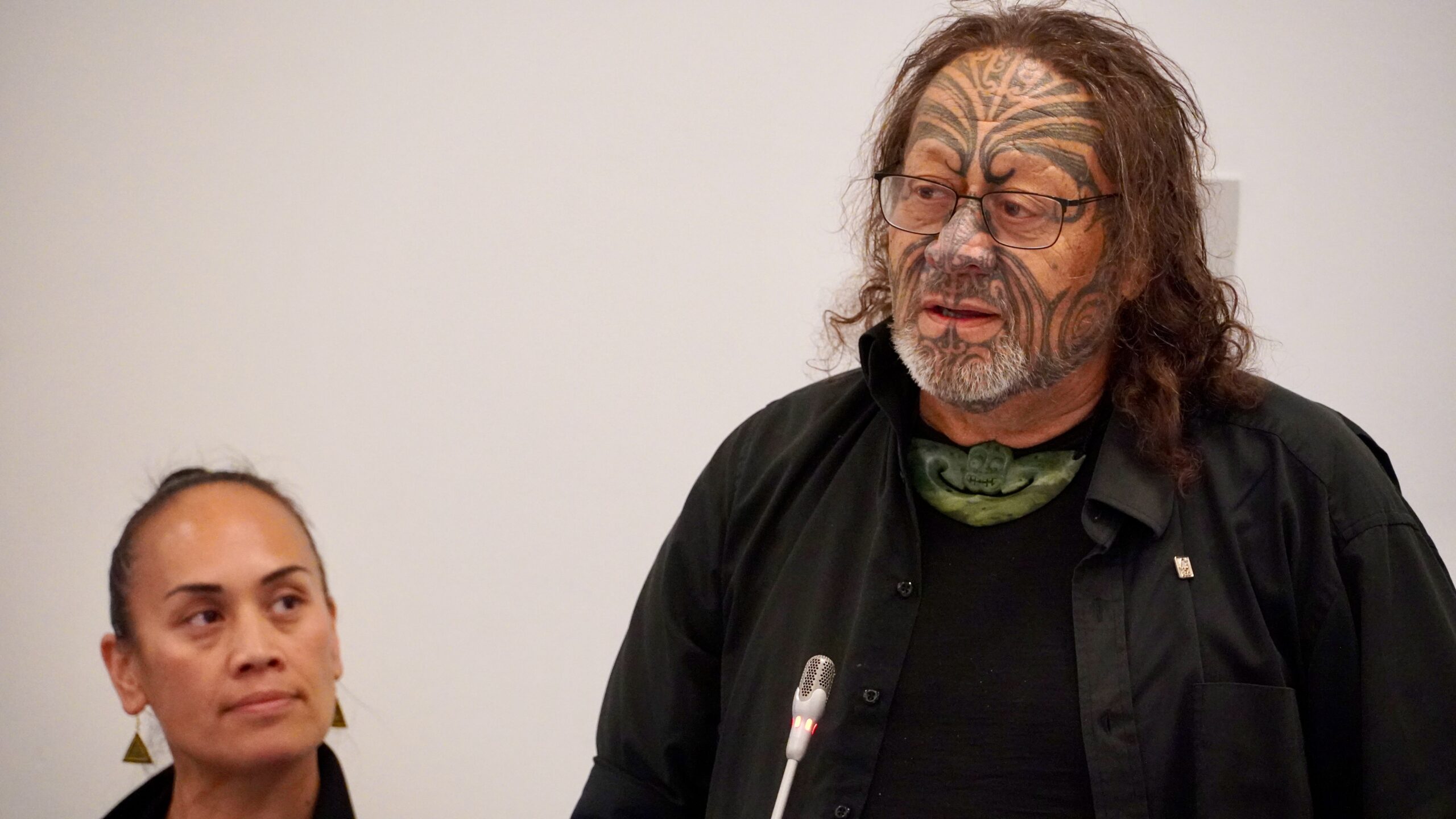
“Reindeer depend on natural, untouched forests.” Niila Inga
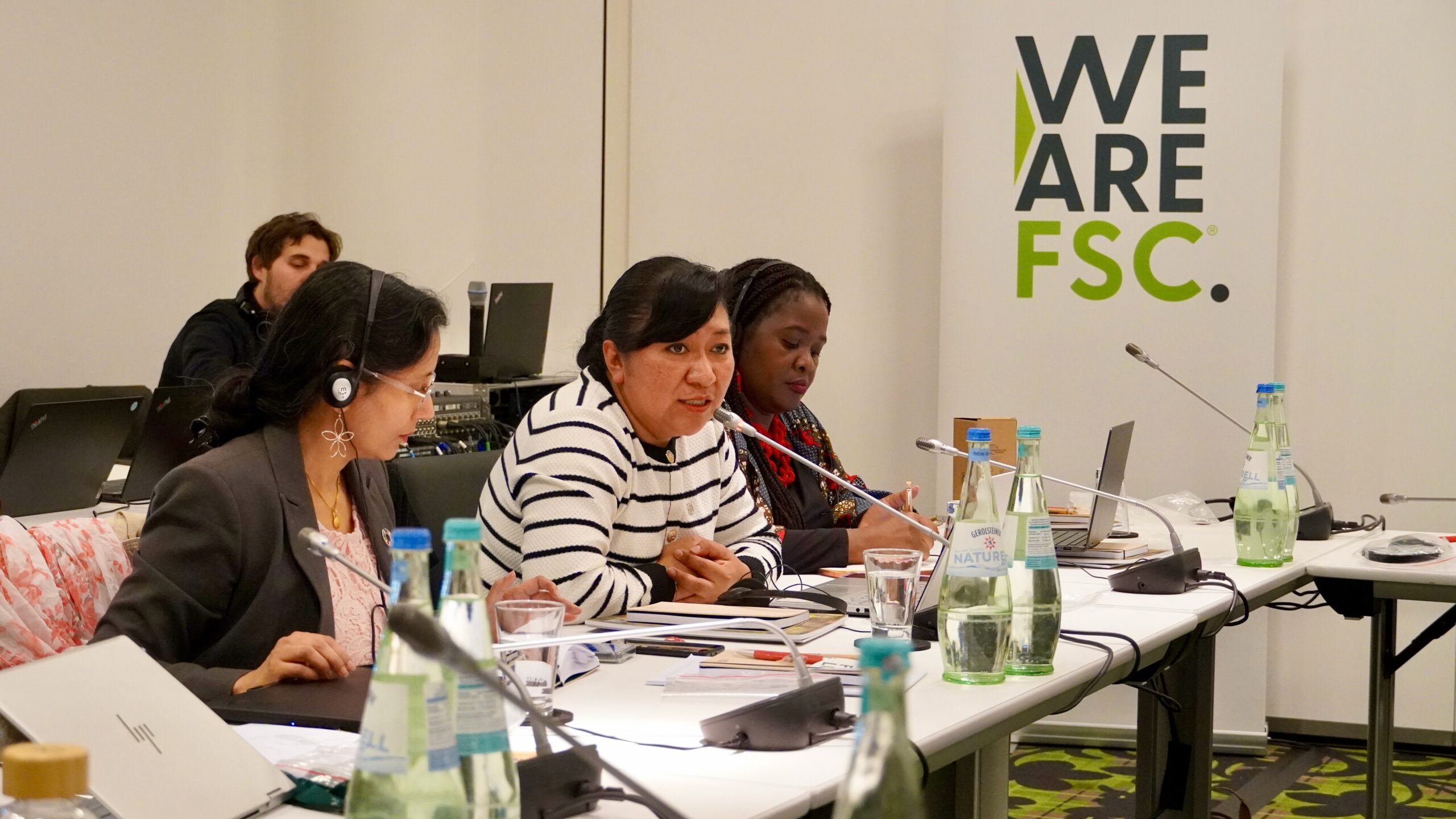
“We do not own the land, but we share the land with the whole community.” Alina Liviet Santiago
“Indigenous knowledge is what has kept our forests around.” Samante Anne
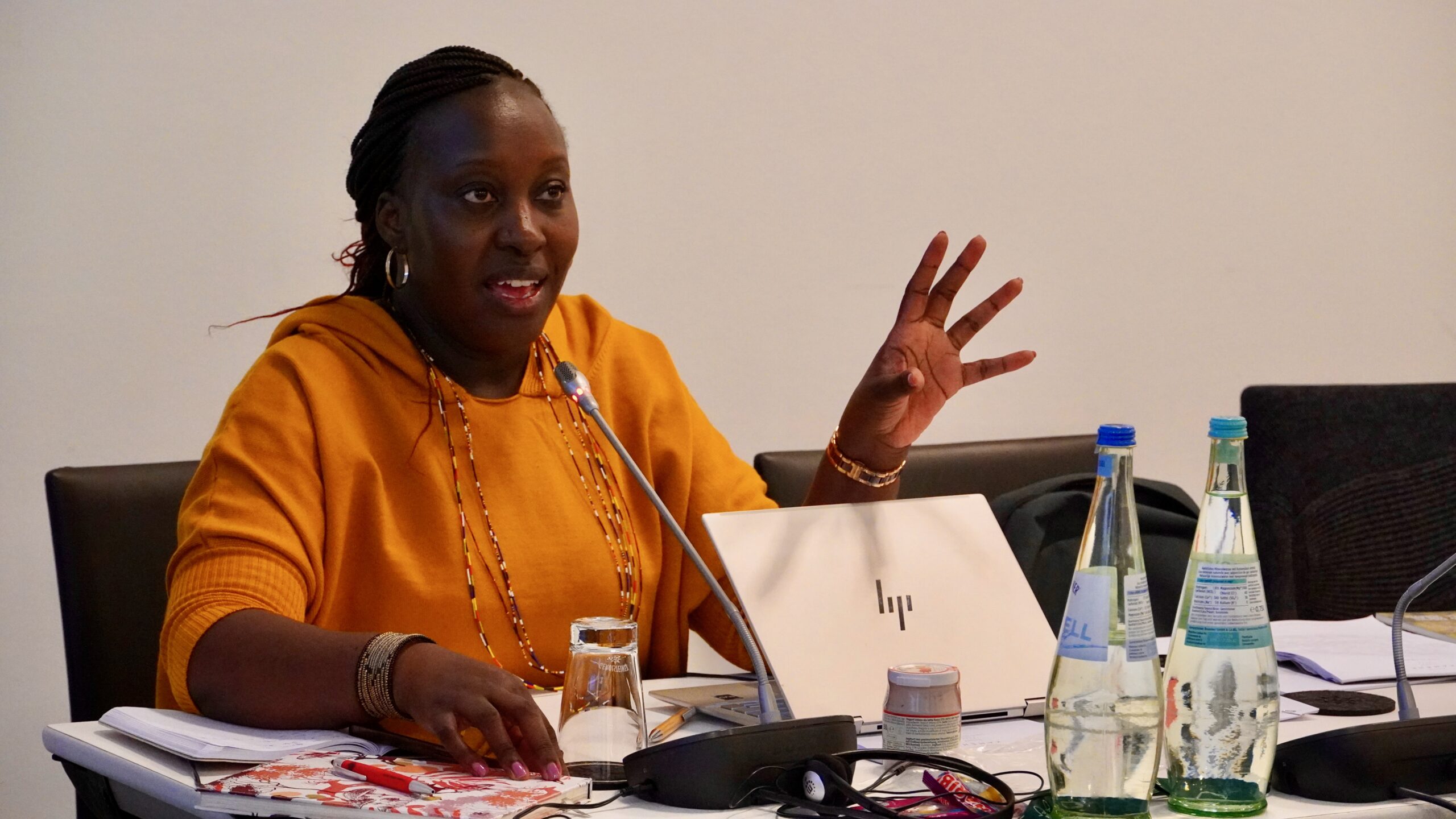
Kim Carstensen, Former Director General of the FSC, Zandra Martinez, PIPC Board Liaison, Peggy Smith, Vice-Chair of the FSC-IF Council, and Alina Santiago, PIPC Co-chair began by dicussing the history and establishment of the PIPC, and how the FSC and FSC Indigenous Foundation work together.
Gemma Boetekees, Director of Stakeholder Solutions at FSC, and Kim Carstensen discussed the past 30 years of FSC’s journey and the importance of Indigenous input for the upcoming 2025 General Assembly, to be held in Panama City, Panama.
Specific collaboration with FSC
This workshop provided a platform for in-depth discussions with several key FSC units. Lieske van Santen, Director of the Global Network Unit, shared about the FSC network and diverse stakeholders within the organization and explored potential opportunities for deeper engagement with Indigenous communities.
From the Performance and Standards Unit, Stefan Salvador, Sandra Fahd, Andres Venegas Soto, Maria Pilar Melero Bravo, and Jannicka Murphy shared the FSC Normative Framework and an overview of FSC Principles and Criteria, focusing on Principle 3 related to Indigenous Peoples’ rights and Principle 9 related to high conservation values. The Principles and Criteria revision process will begin in 2025, and all participants discussed how Indigenous Peoples can be involved in this process. PIPC members expressed their interest in being involved in the revision.
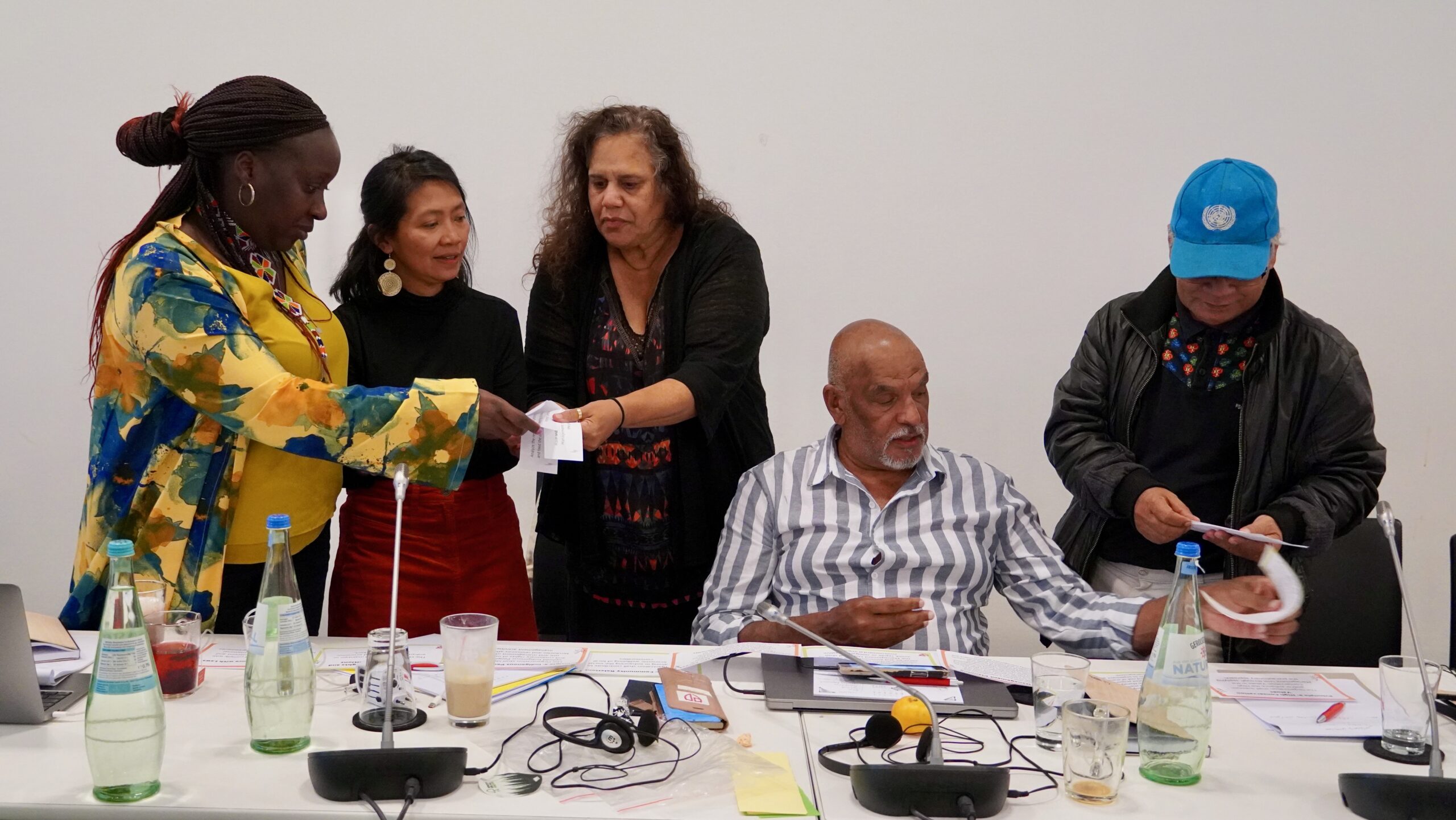
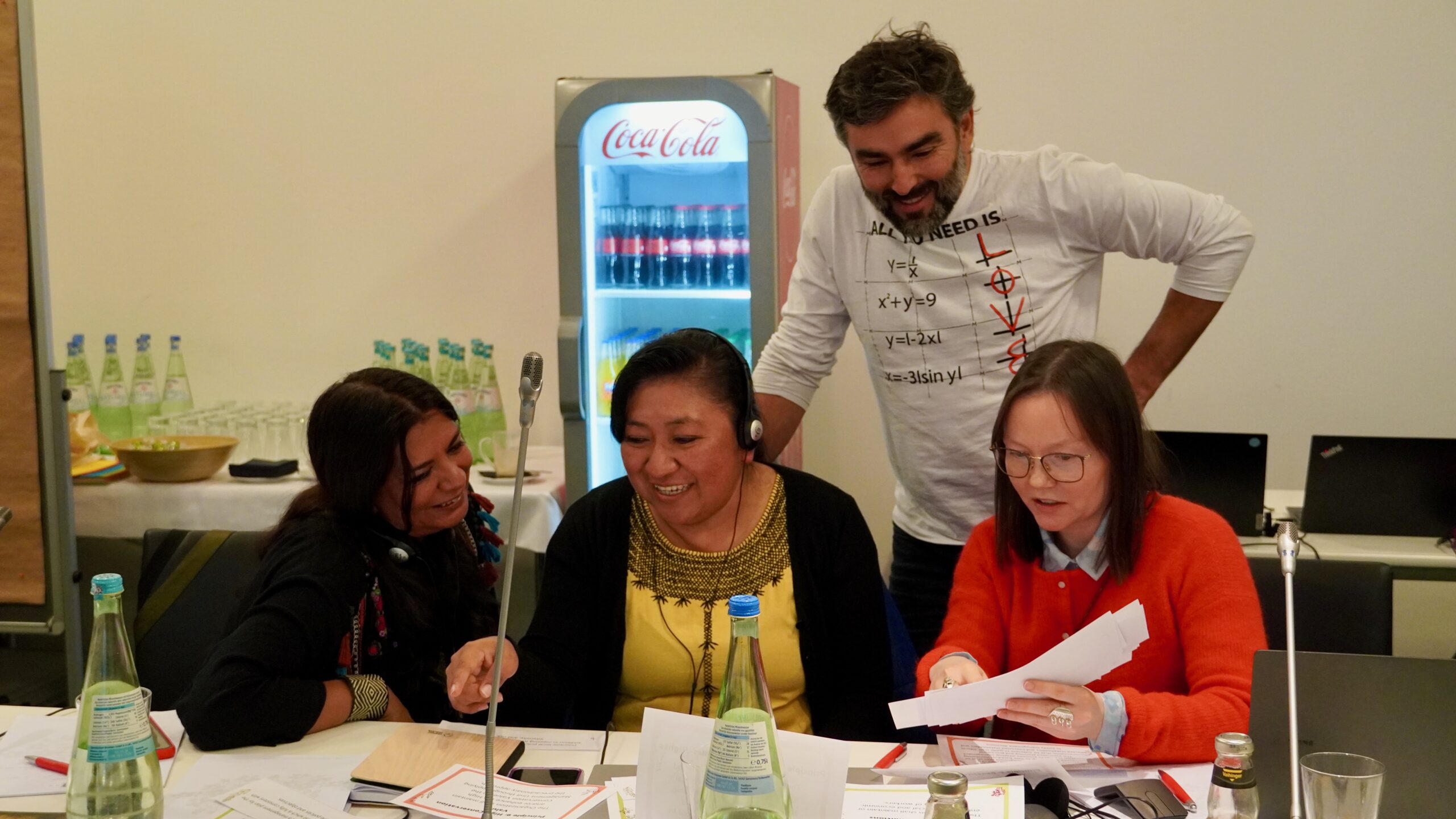
Frank Trolliet, also from the Performance and Standards Unit, led an exploration of existing FSC maps and potential for the development of a map showing the overlap between Indigenous Peoples’ forests and certification. Despite the data security limitations, there was a lot of interest in creating this map.
From the System Integrity Unit, Salem Jones, Jessica Surma, Julian Nierentz, Mario G. Aguilera, Marc Jessell and Lorena Martinez presented the FSC Remedy Framework, Revision of FSC Complaints and Appeals Procedures, and a specific case. All participants discussed how to build relationships of trust with Indigenous communities, and how PIPC can be involved in the consultation on the Free, Prior, and Informed Consent (FPIC) indicators. An in-depth discussion on the challenges faced by Indigenous communities living in isolation adjacent to forest management areas and the resolutions addressing these issues was carried out.
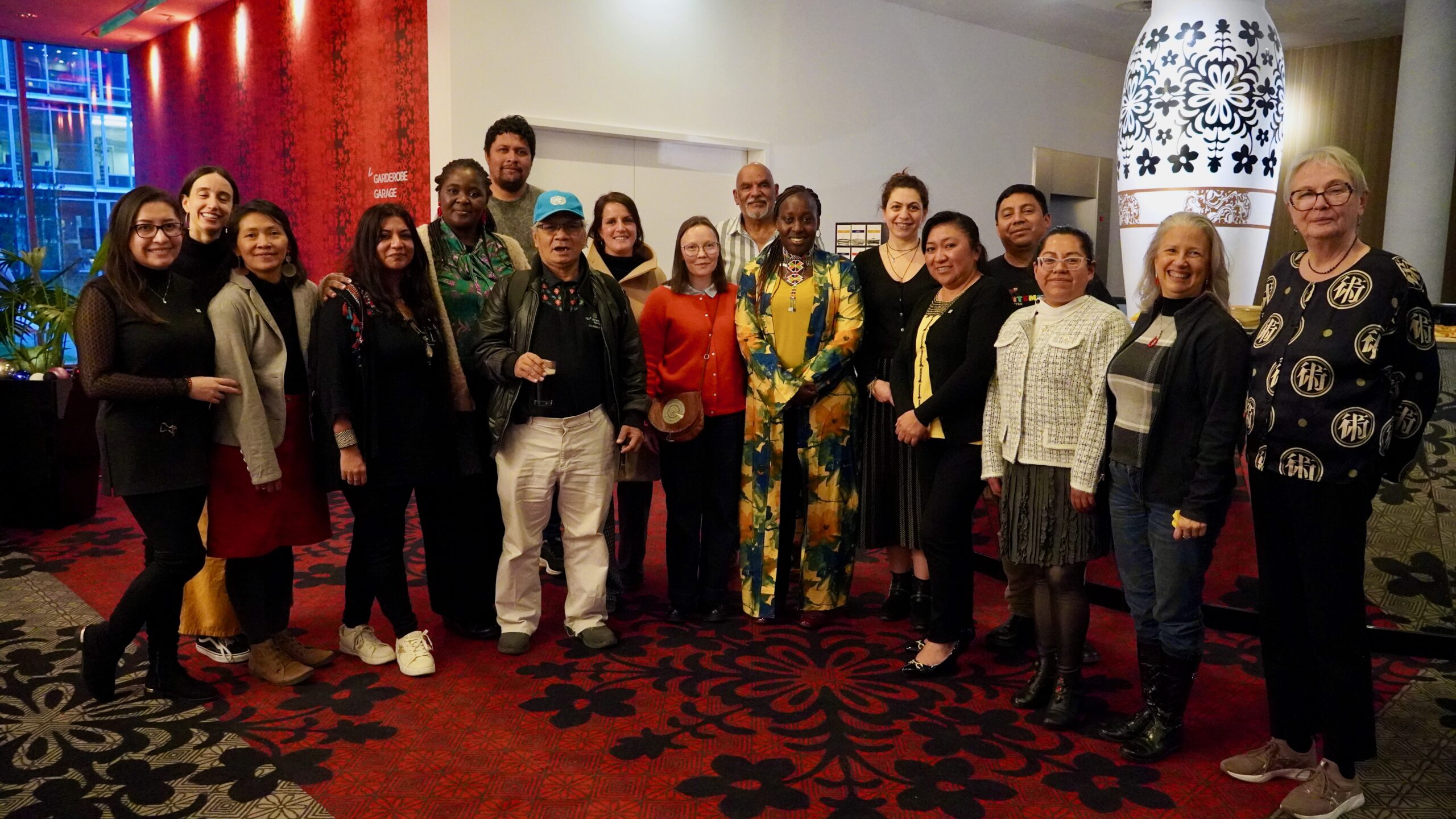
Maria Wowro and Natalia De Morais Gagini, working on Ecosystem Services within the Marketing and Commercial Unit, explained what Ecosystem Services are – the essential benefits that forests provide to people and the environment, such as carbon sequestration, water filtration, and biodiversity conservation. A discussion followed on incorporating cultural services and practices into FSC’s Ecosystem Services Procedure, with a focus on the benefits of certification for Indigenous communities. In addition, Sean Nyquist presented on non-timber forest products and explained the global rubber value chain, prompting participants to reflect on exploring NTFPs within their territories
Finally, PIPC members shared valuable insights to support the FSC Indigenous Foundation’s strategy on climate, biodiversity, land, finance, and ecosystem services.
“The Pacific contributes less than a quarter of 1% to climate change and yet the impact there is disproportionate,” said Te Ngaehe Wanikau, Maori from Aotearoa. “The Pacific generates 50% of the oxygen we breathe, and these are all Indigenous nations, maybe up to a third of them will not last another 50 years.”
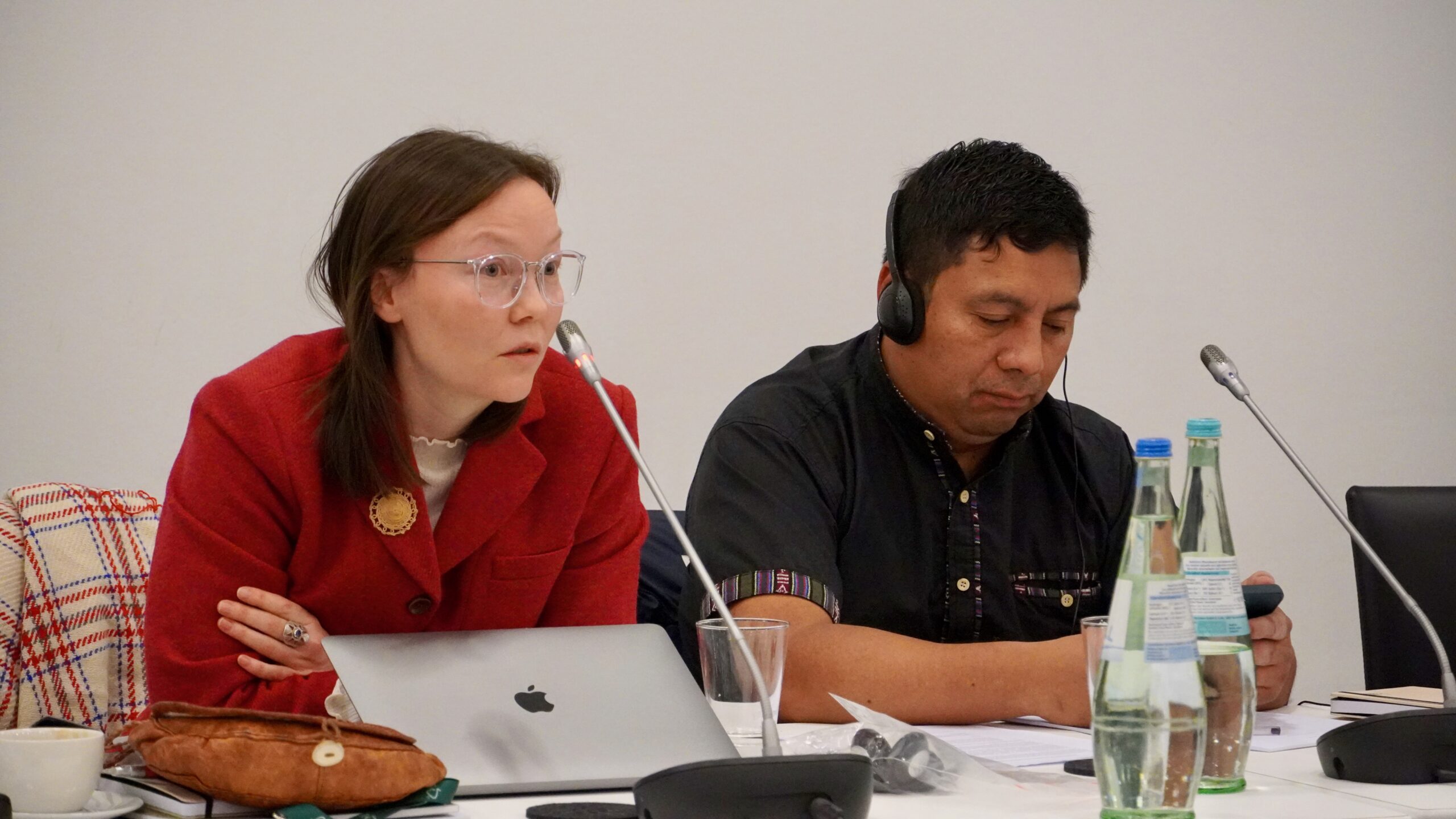
“When it is supposed to snow it is raining, when it should be minus degrees it is plus degrees, so when you are doing the migration routes from summer pastures down to winter pasture it is dangerous because lakes and rivers are not freezing,” said Karin Nutti Pilflykt, Sami from Sweden.
“About 10 years, the water crisis began, and it has been complicated. It has been affecting Indigenous communities, because they have regional economies, and increasingly less water is available, also affecting forest areas,” said Nadia Gomez, Warpe from Argentina
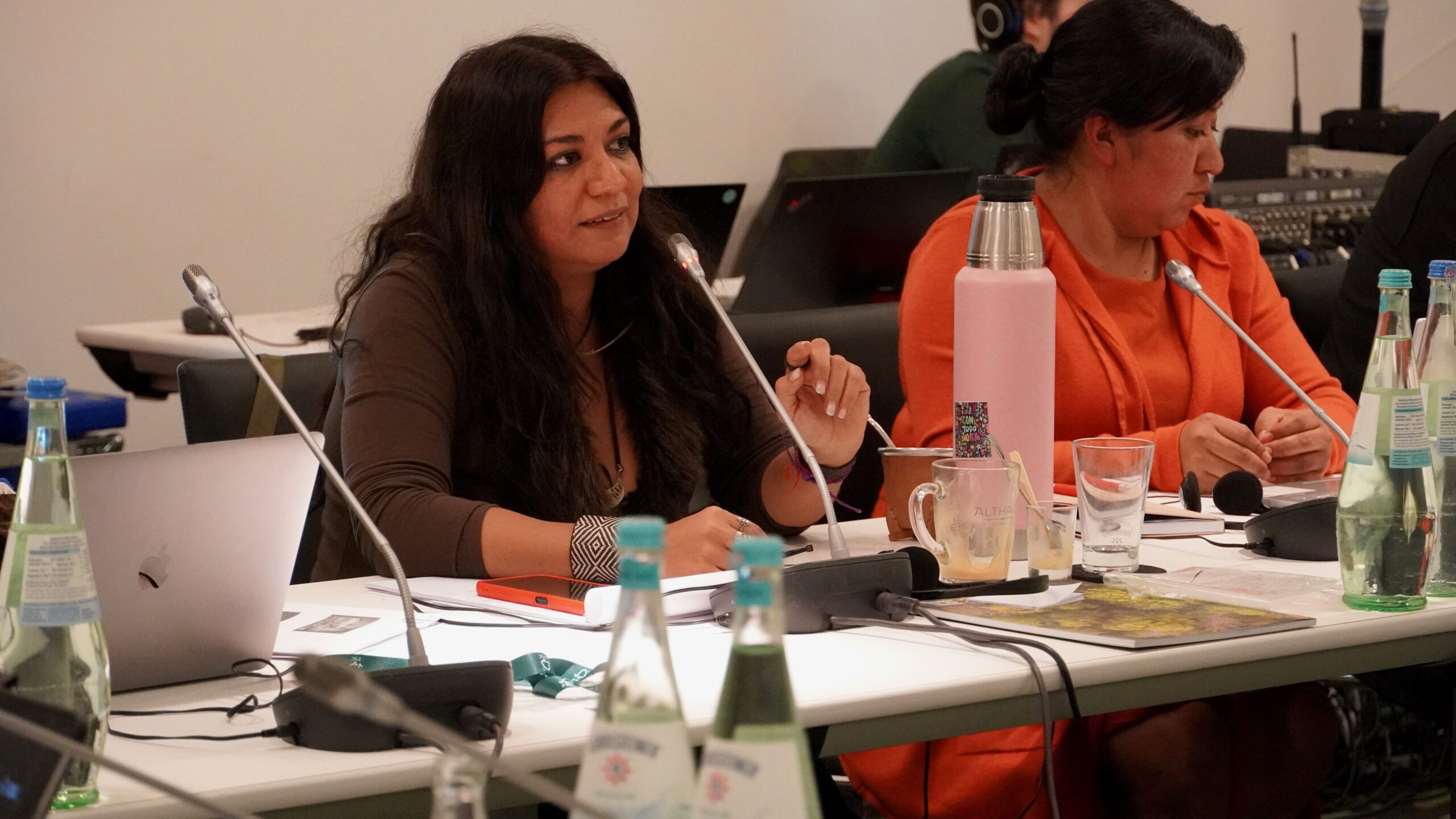
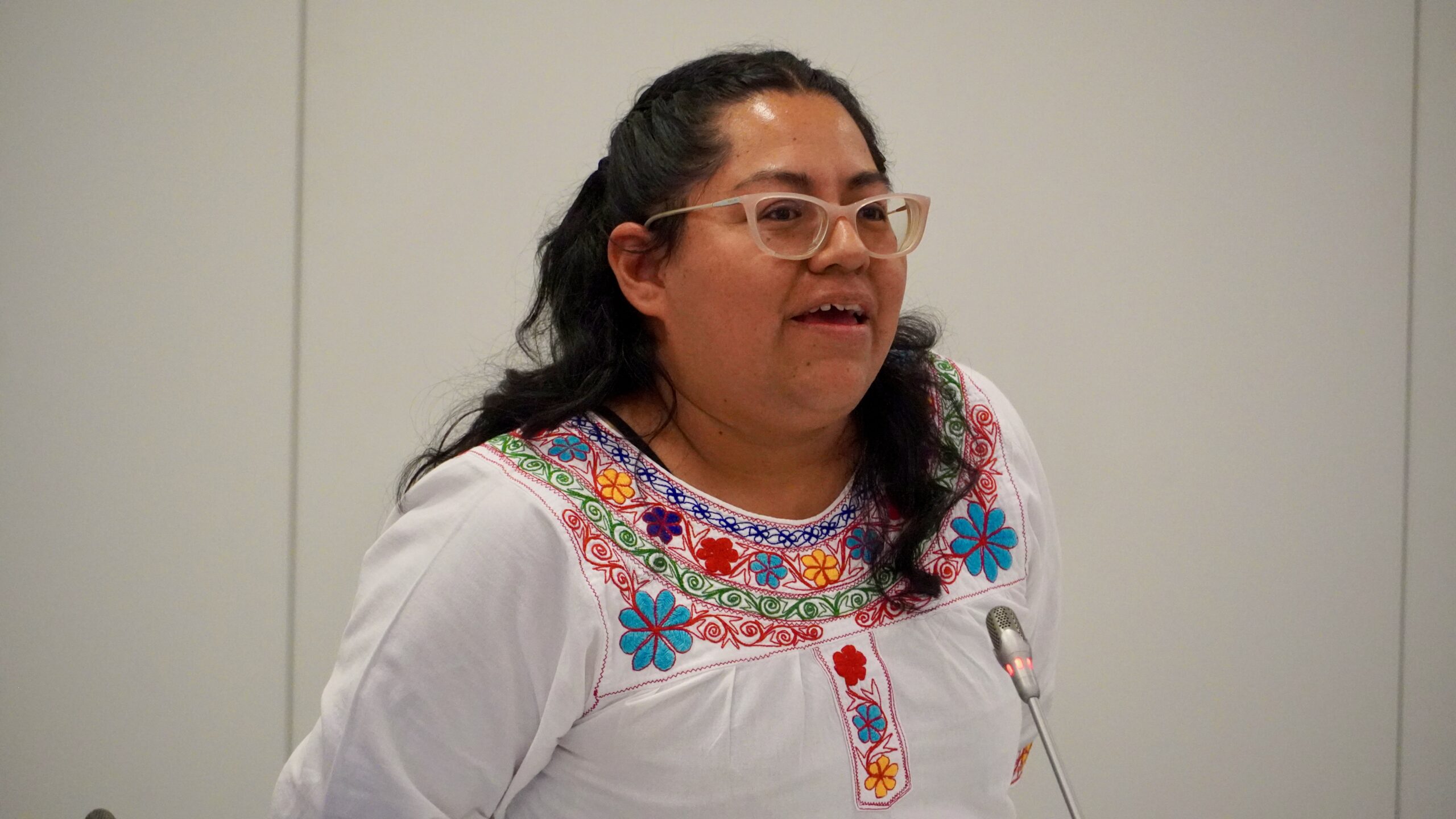
“In our community, climate change is manifested in pests. Bark strippers is one of the pests that we cannot eradicate,” said Loida Ramirez, Zapoteca from Mexico.
Next steps: Oceania meeting in Aotearoa
The PIPC will hold the Oceania Regional Meeting from January 20 – 25, 2025 in Taupo, Aotearoa/New Zealand. The meeting aims to foster collaboration, knowledge exchange, and a constructive dialogue on forest stewardship within the Oceania region, focusing on integrating Indigenous and Western knowledge for sustainable forest management. It will feature key discussions on FSC certification, Indigenous Peoples’ rights, governance, and sustainable forest management, as well as an emphasis on cultural respect and Free, Prior, and Informed Consent (FPIC). Interested Indigenous Peoples from the region are invited to attend.
Join us
This workshop marks an important milestone in the collaborative journey between Indigenous leaders, FSC, and the FSC-IF, ensuring that Indigenous knowledge and voices remain at the forefront of global efforts for sustainable forest management, and climate, biodiversity and restoration. Together, we continue to build more inclusive and effective forestry practices around the world and promote Indigenous Peoples rights, forests, and territories.
Reach out to us at fsc.if@fsc.org if you would like to be a part of this journey.
